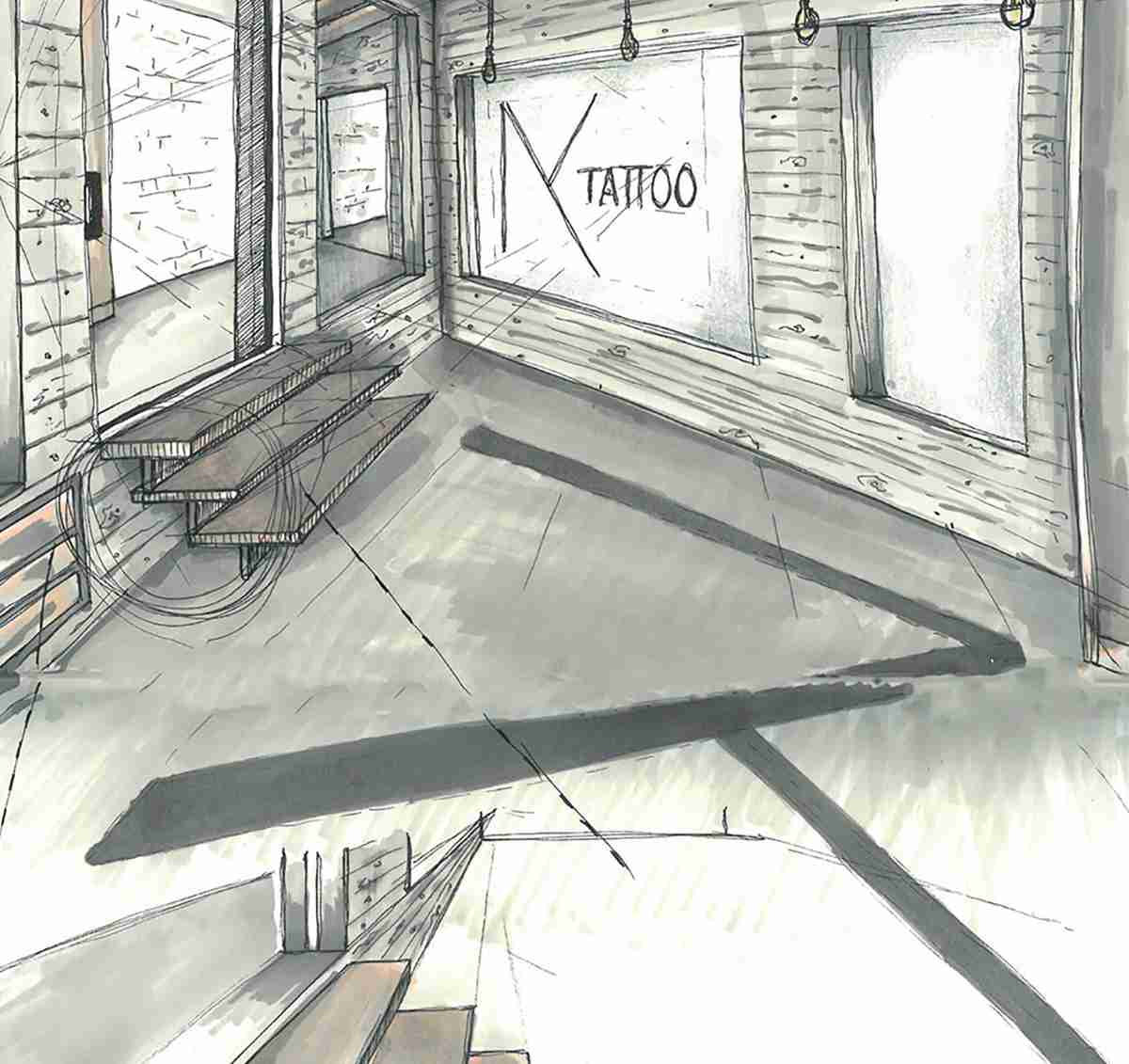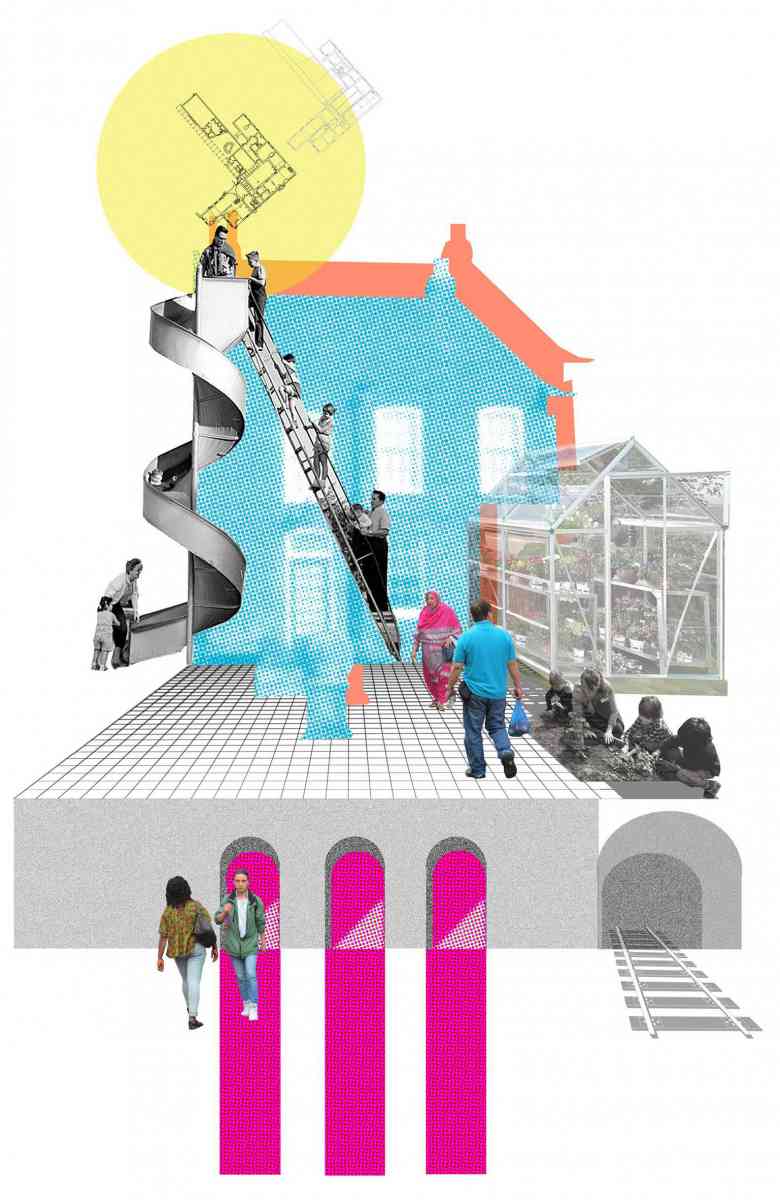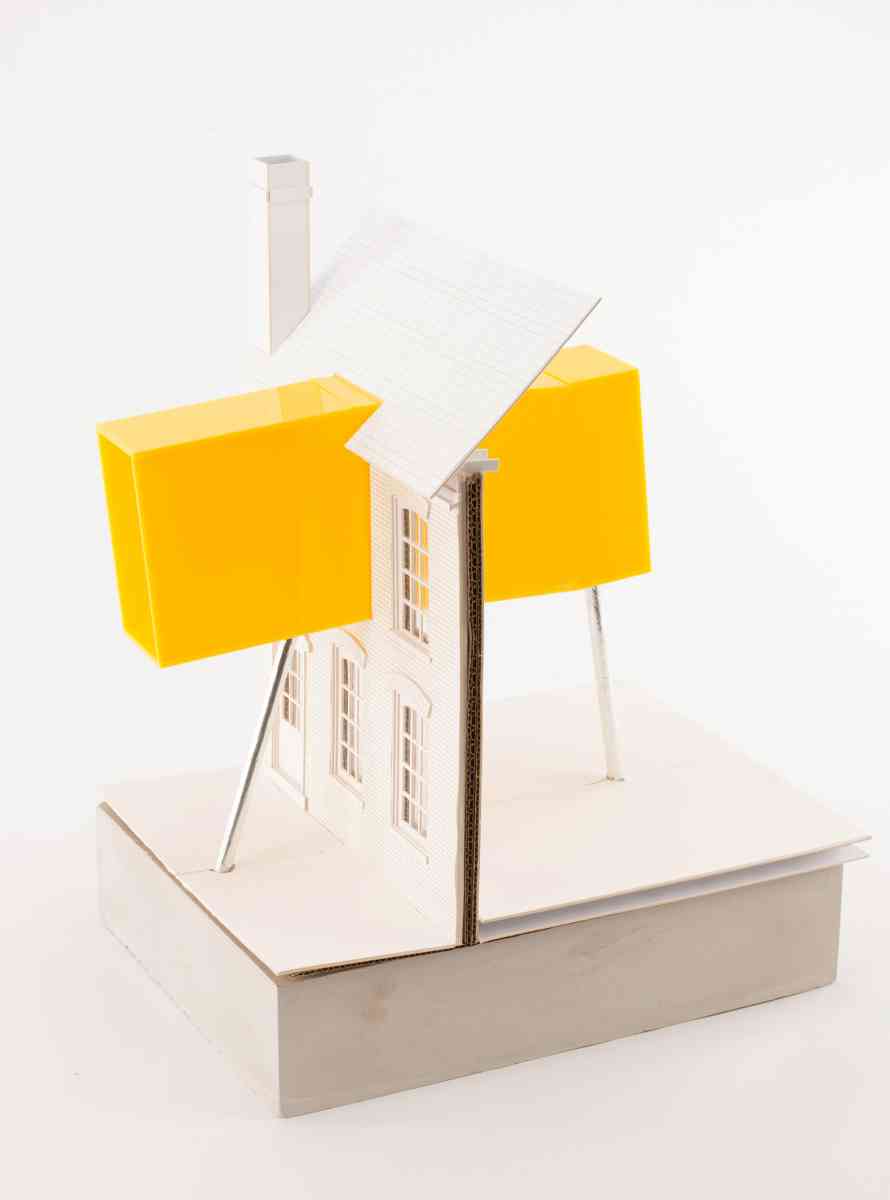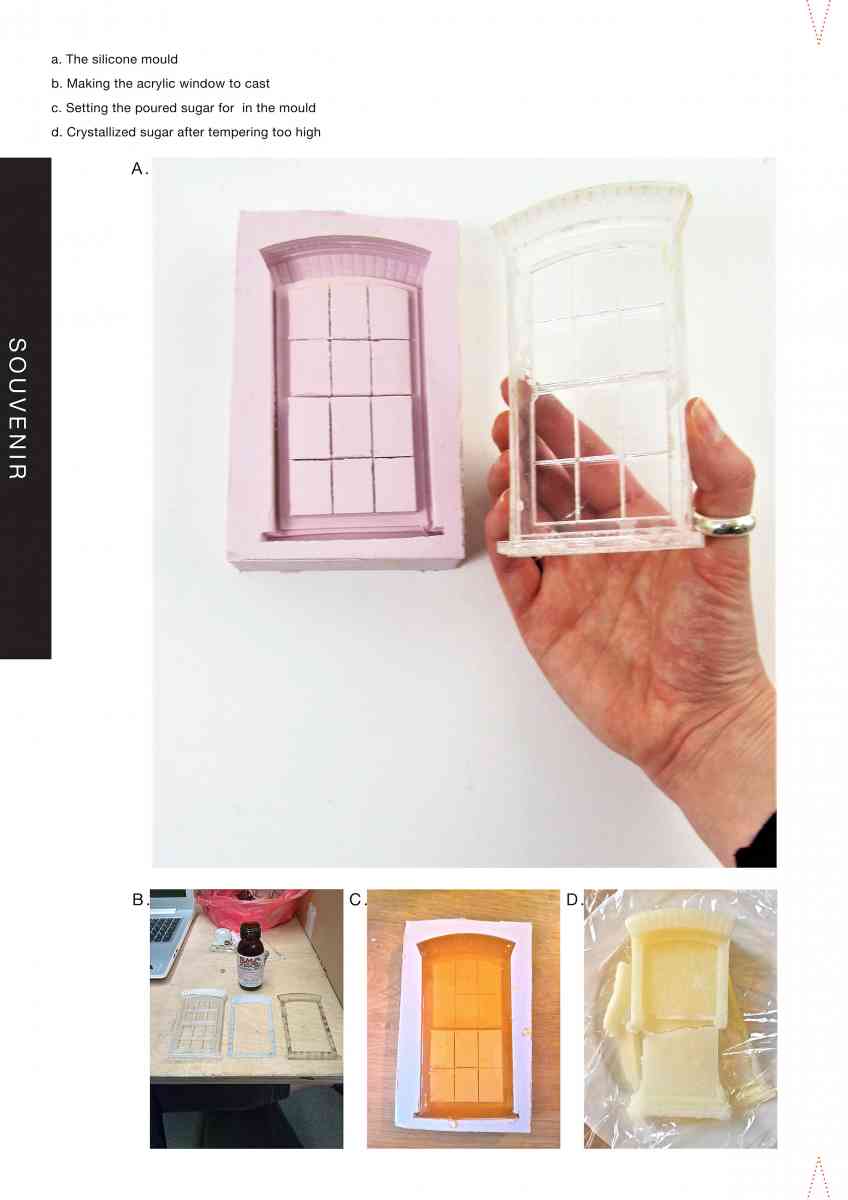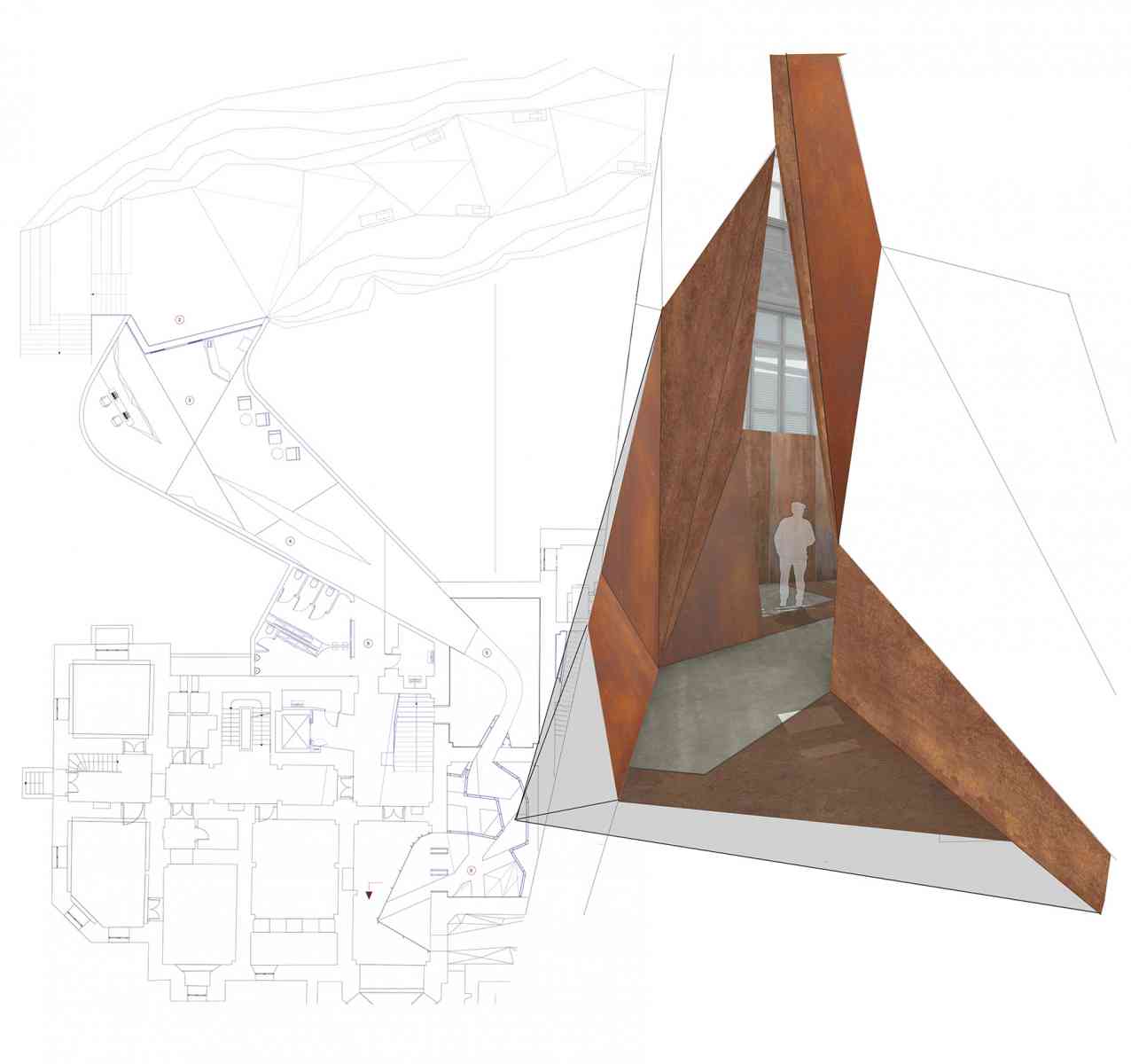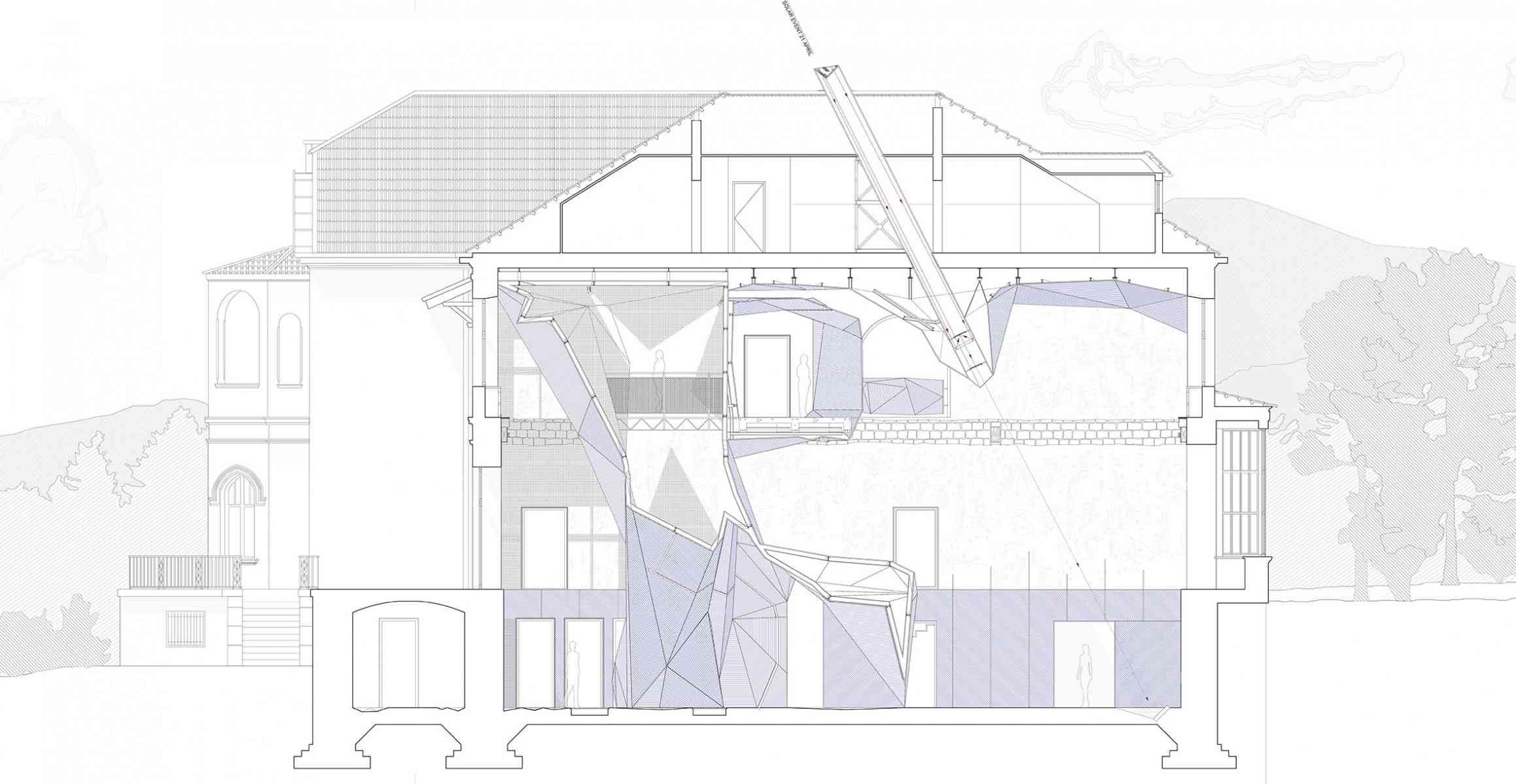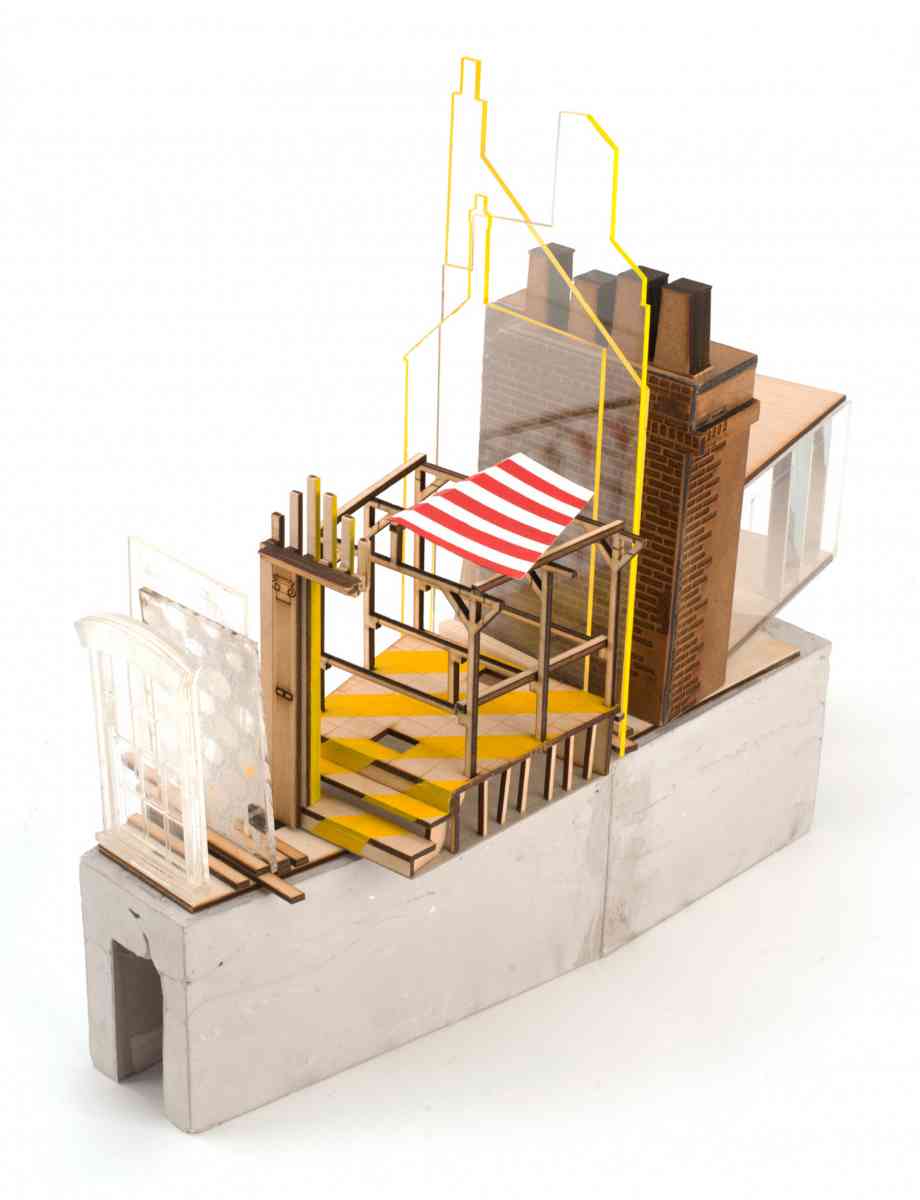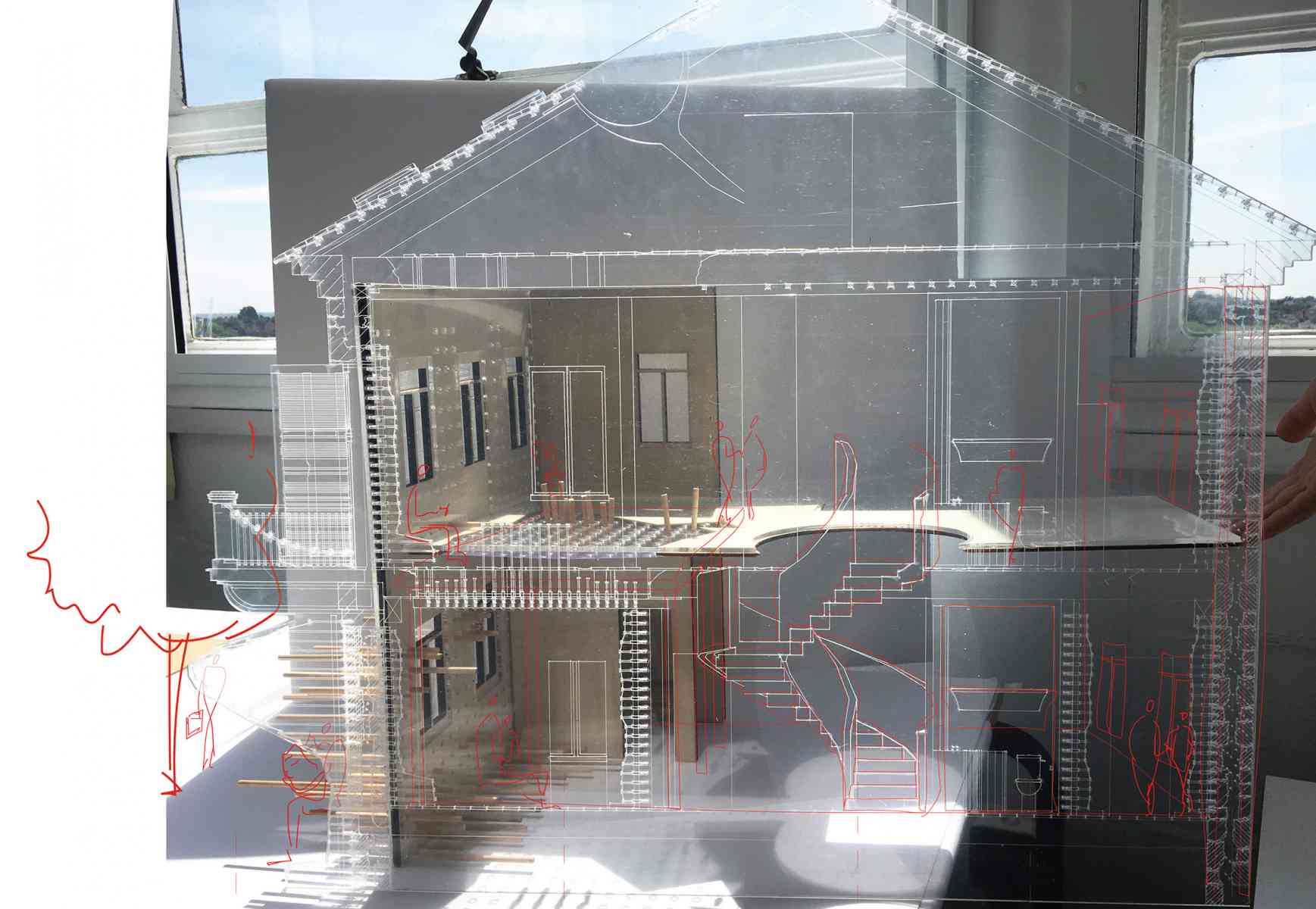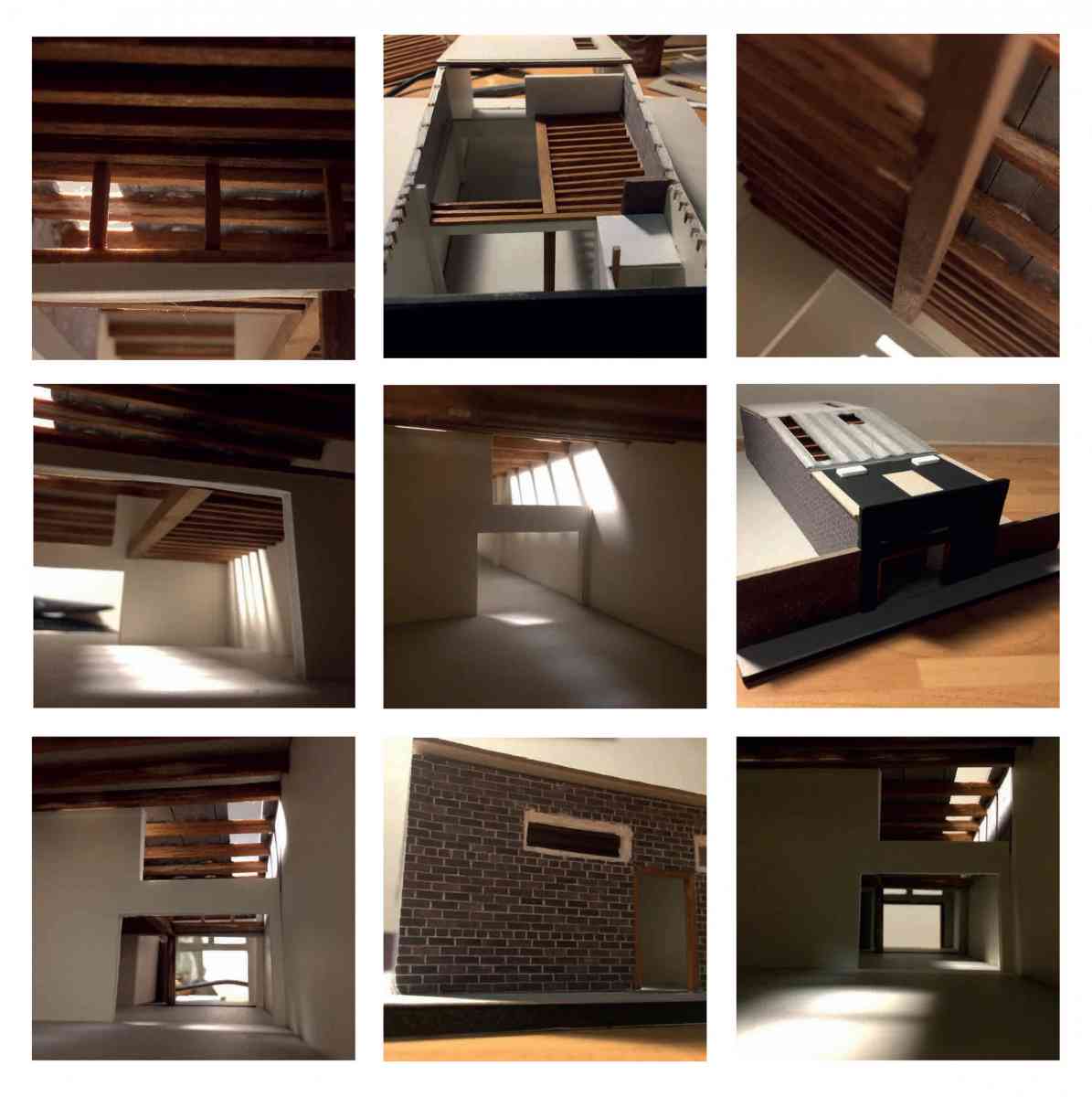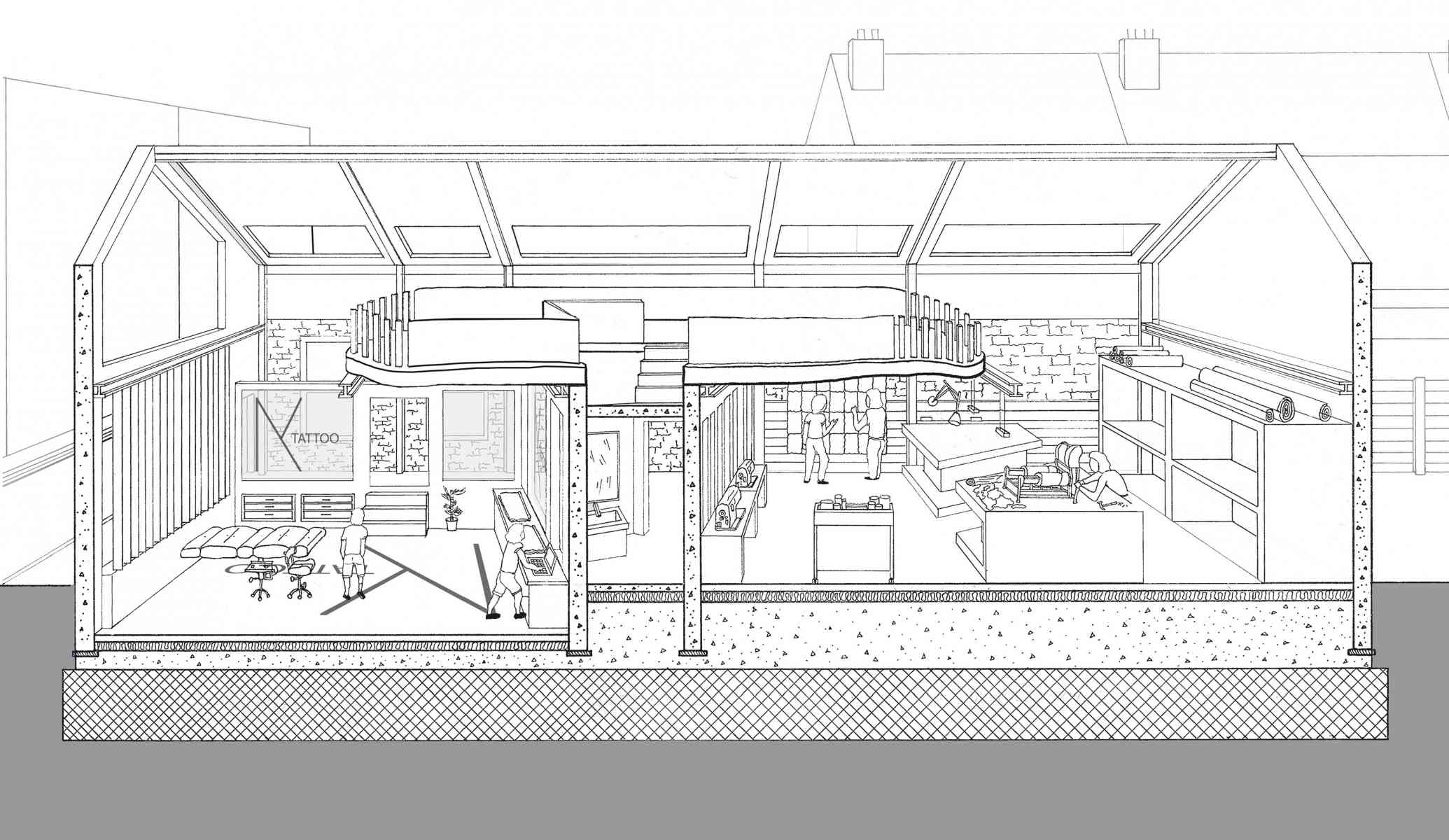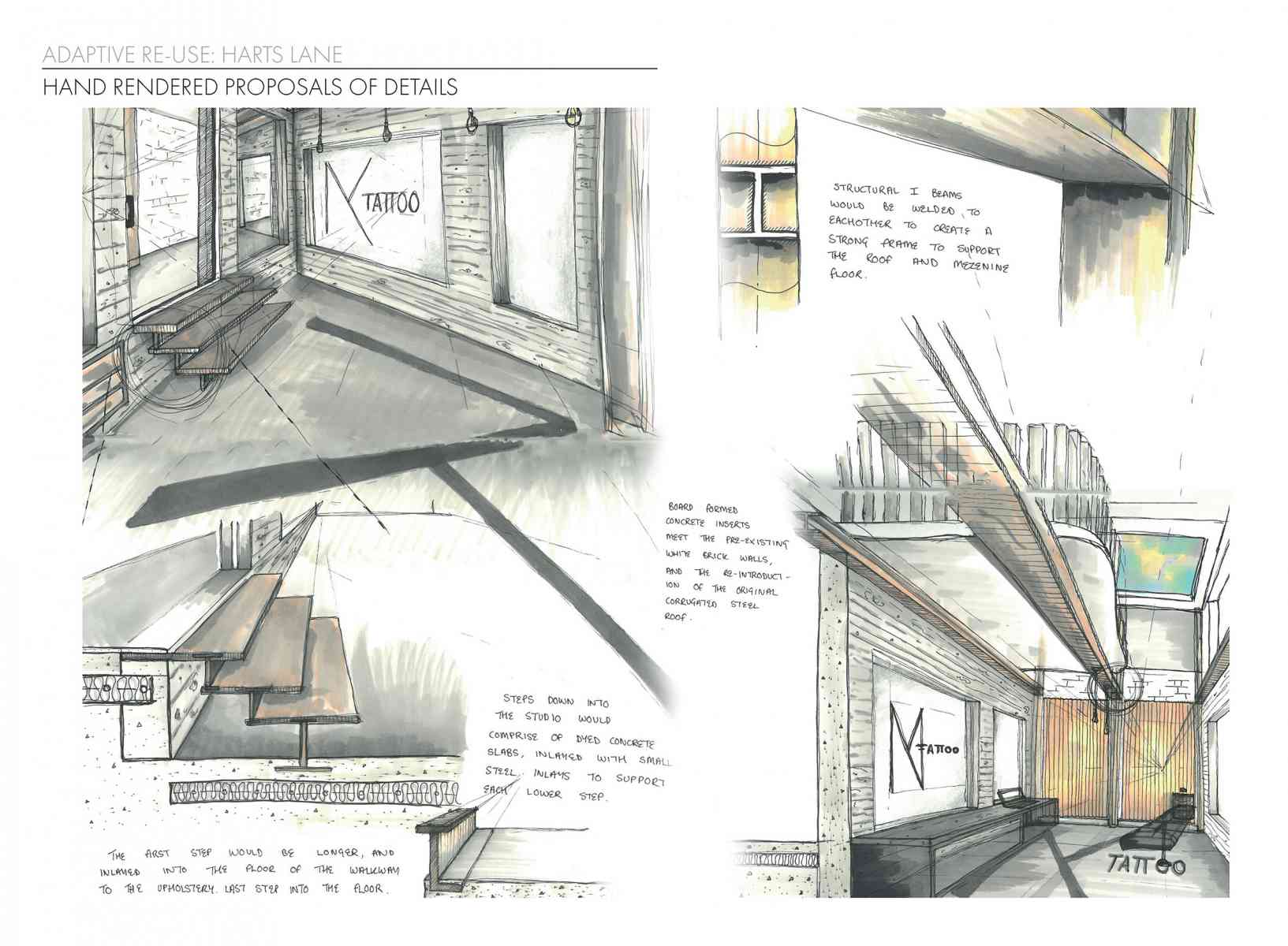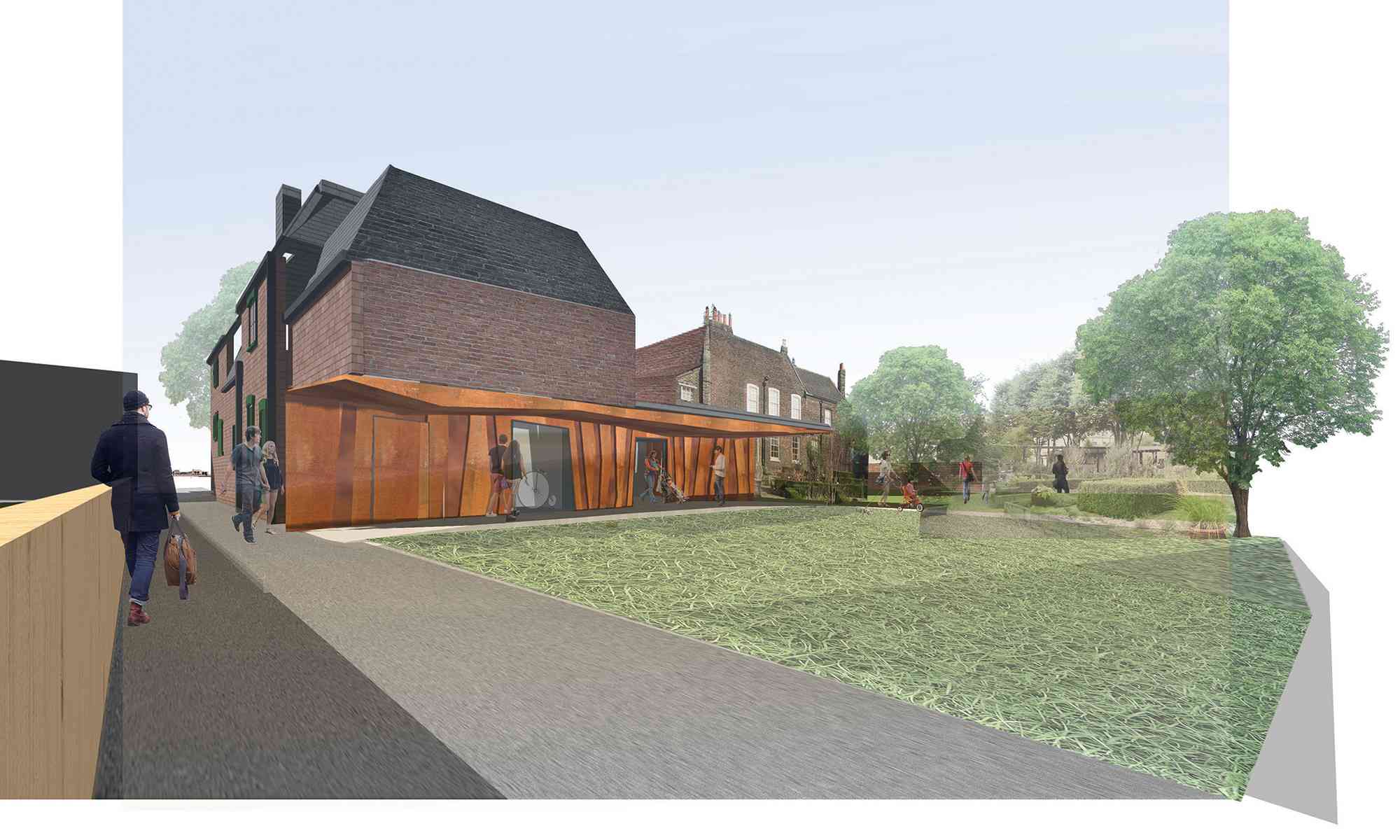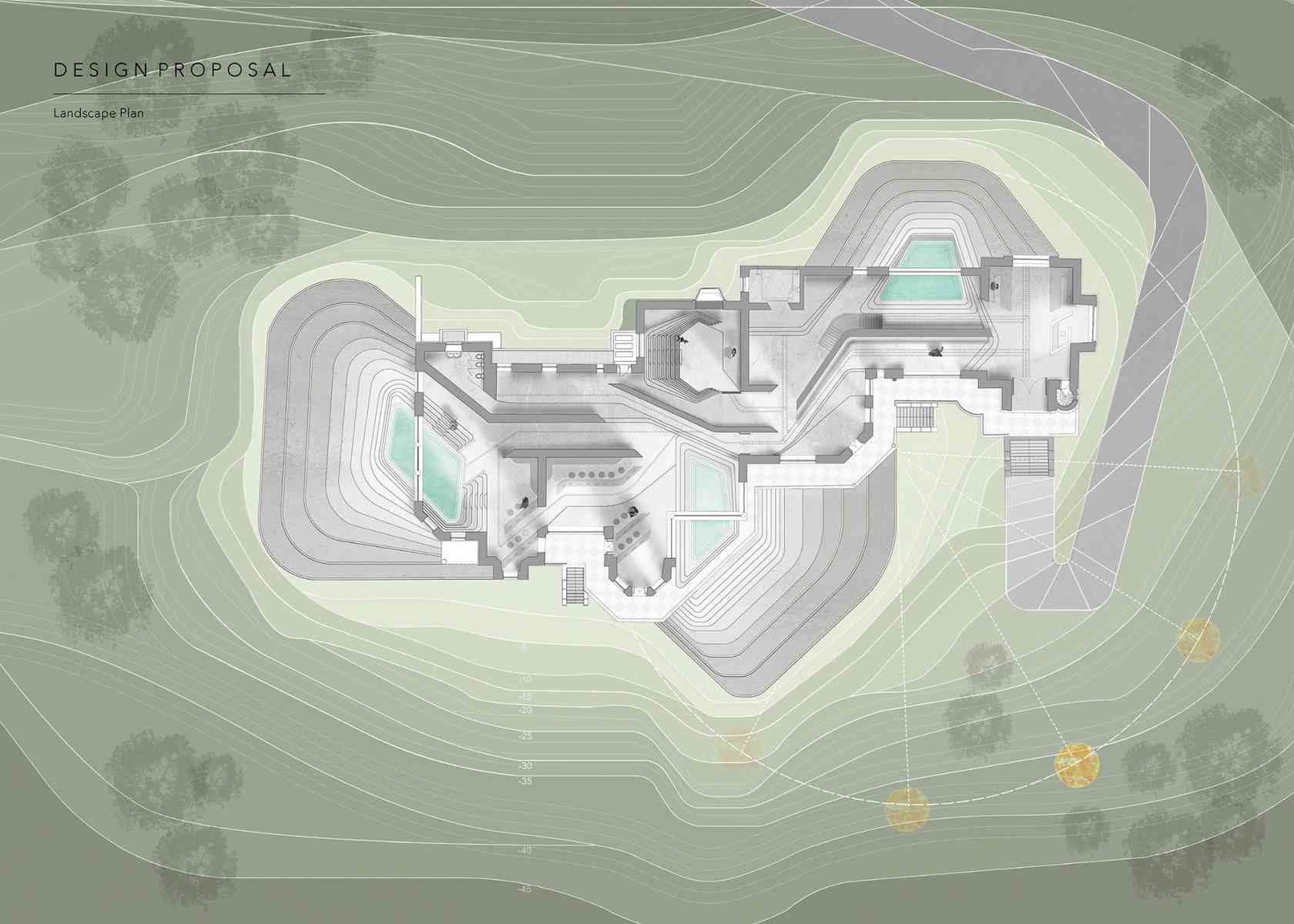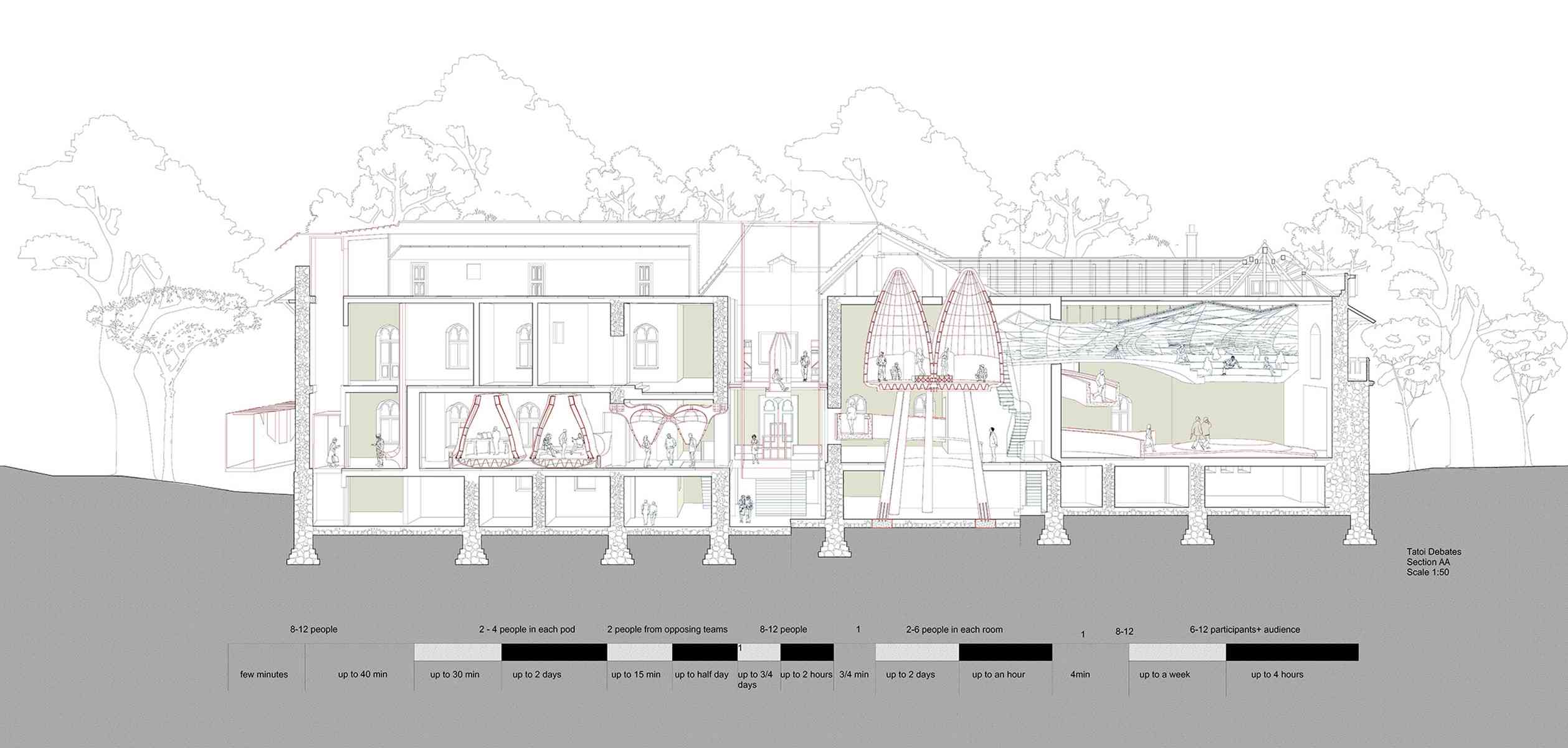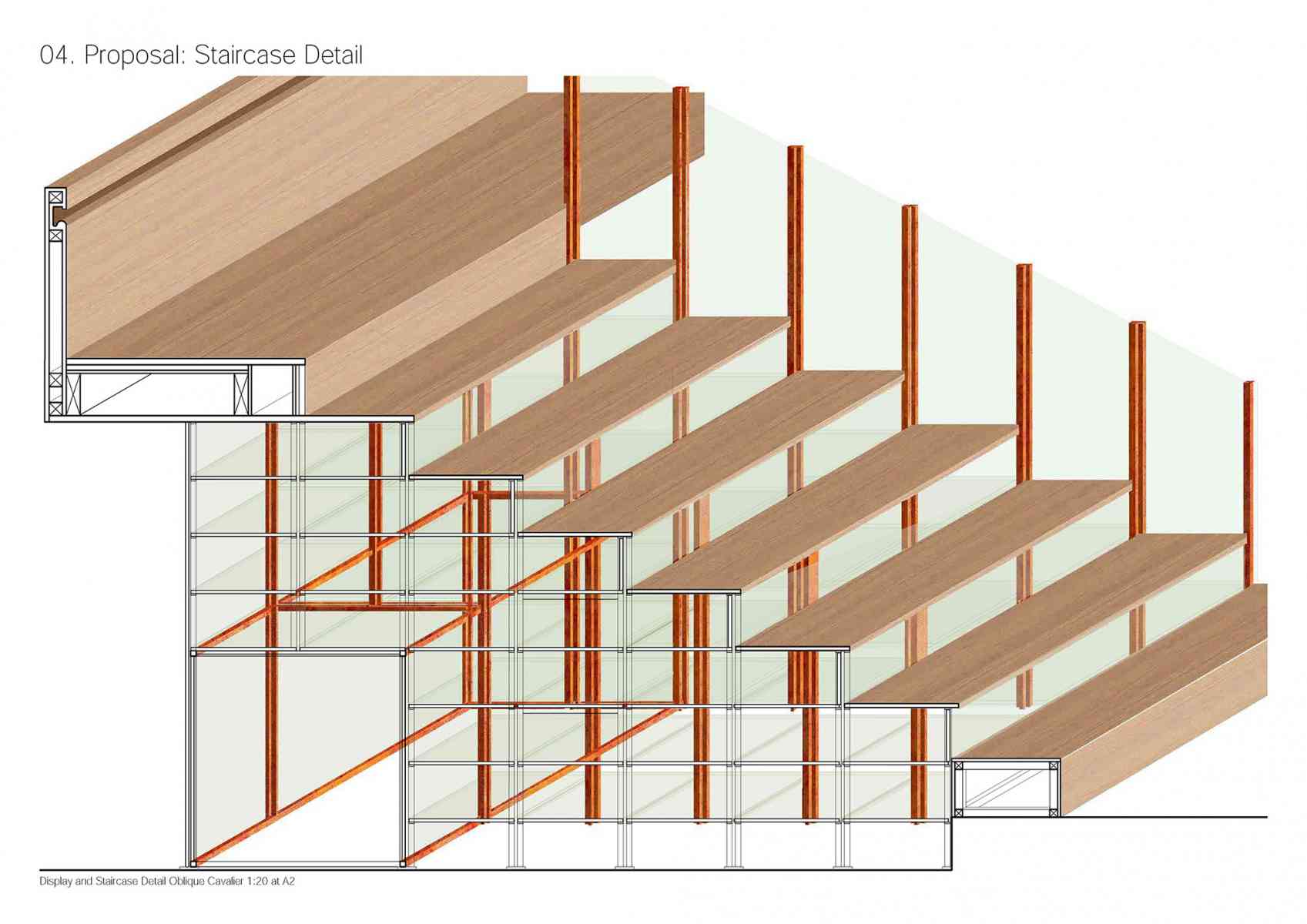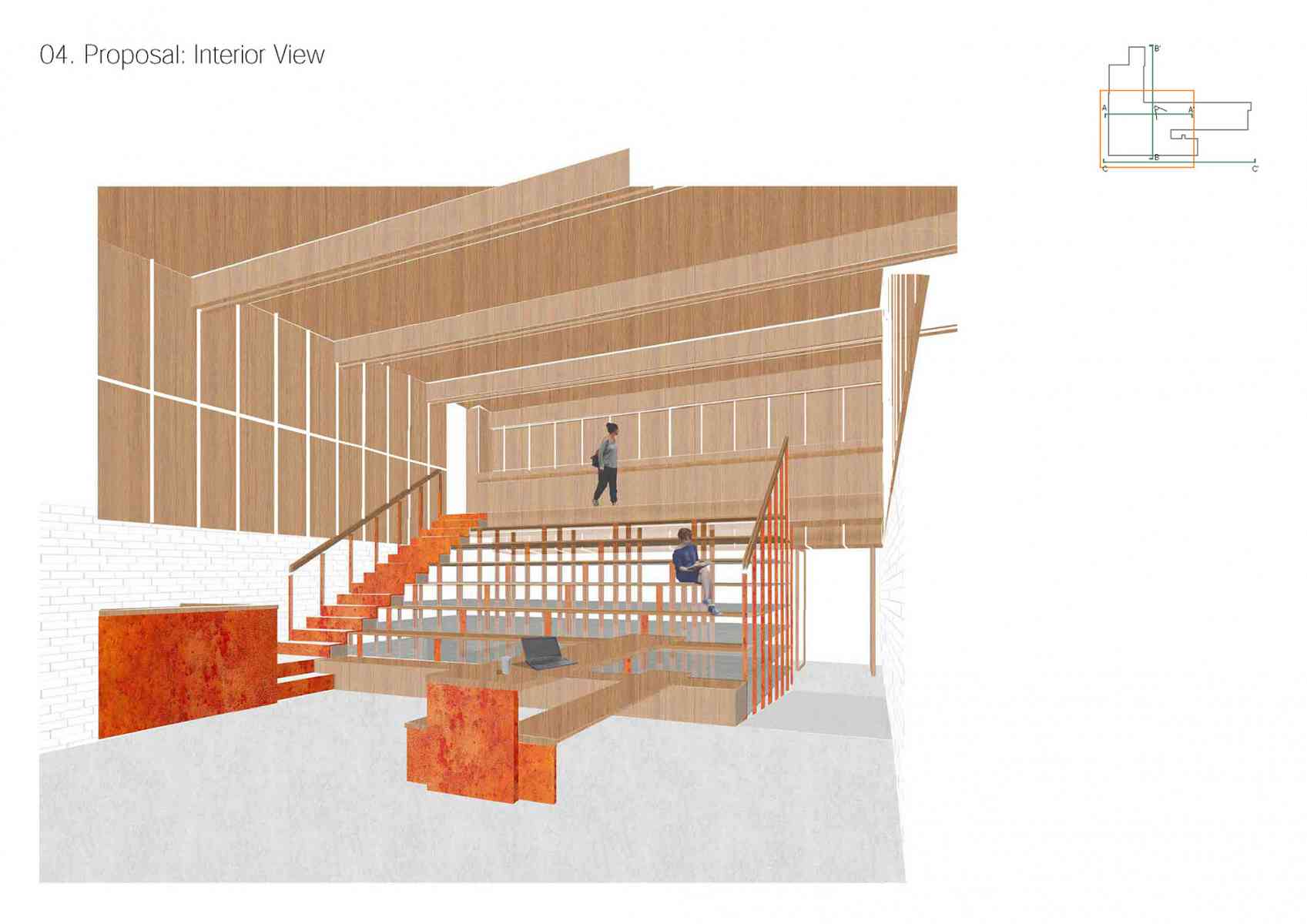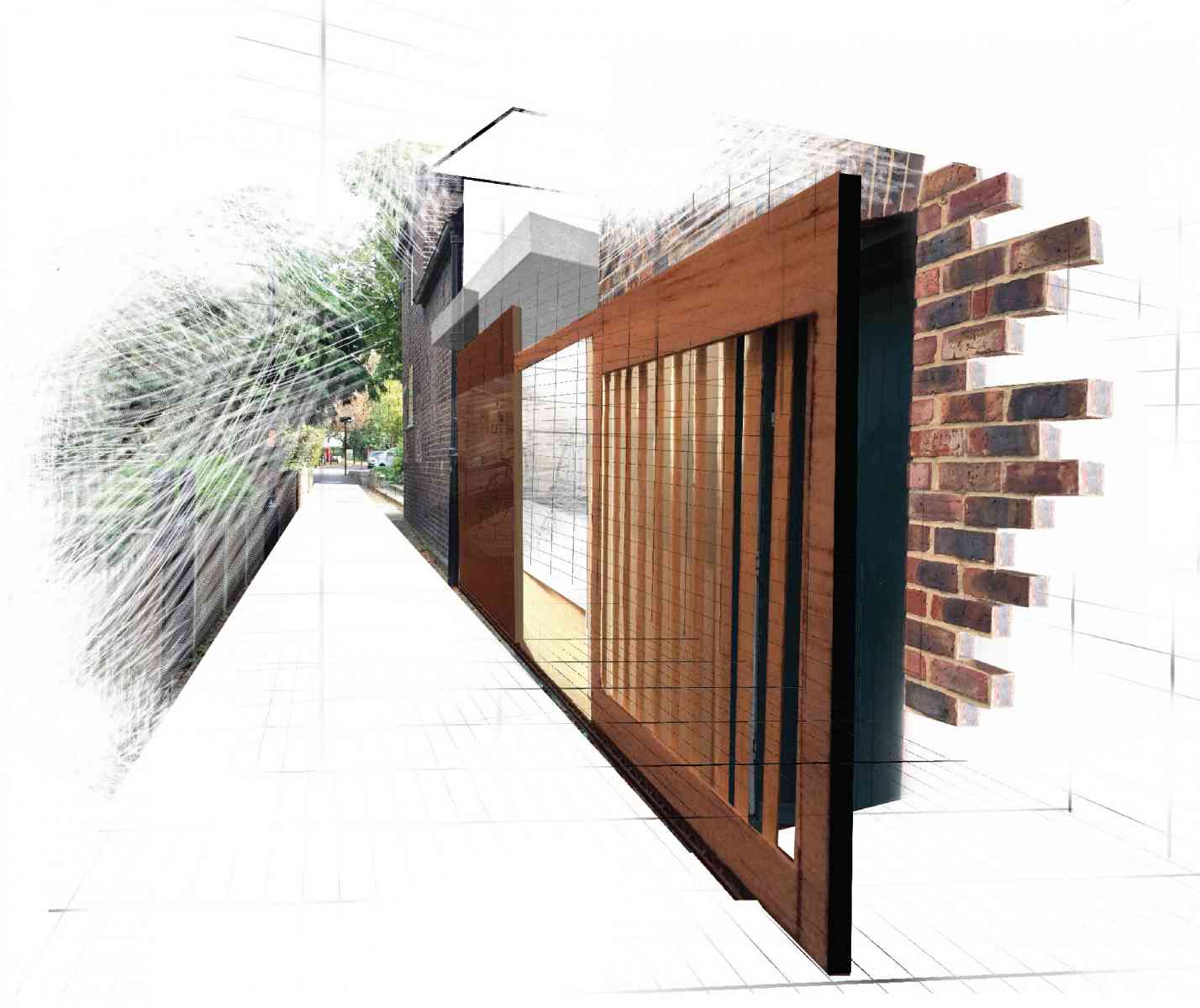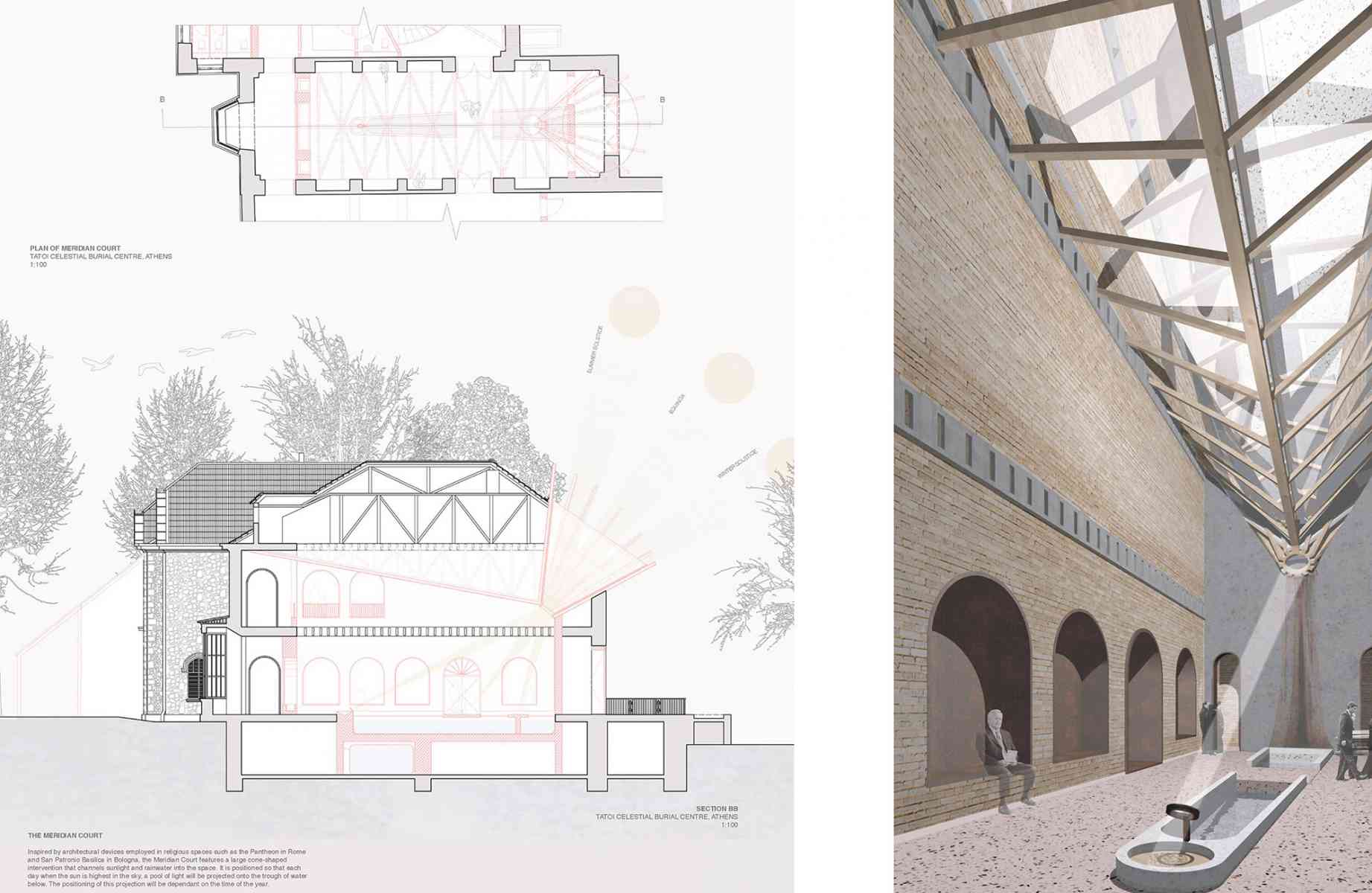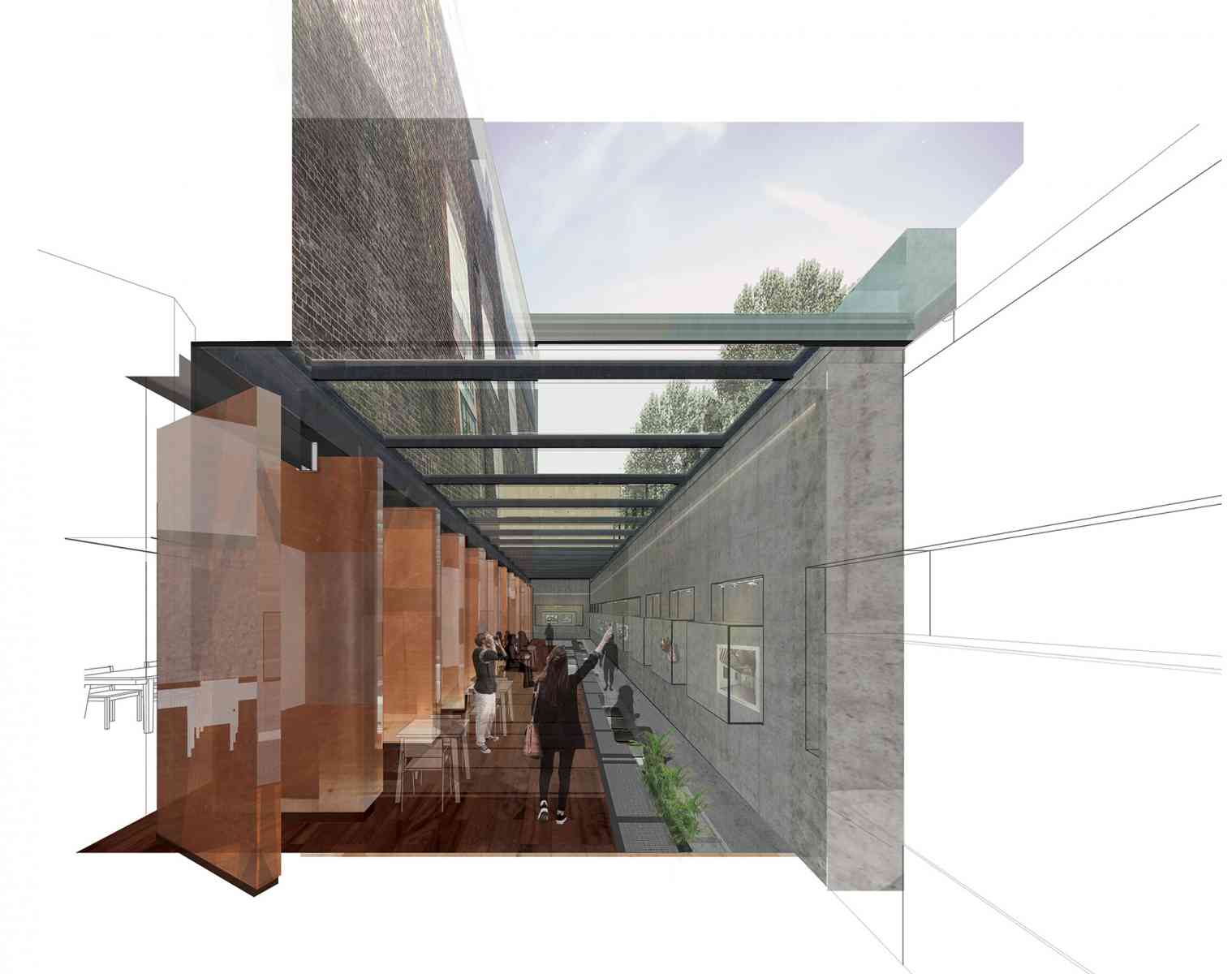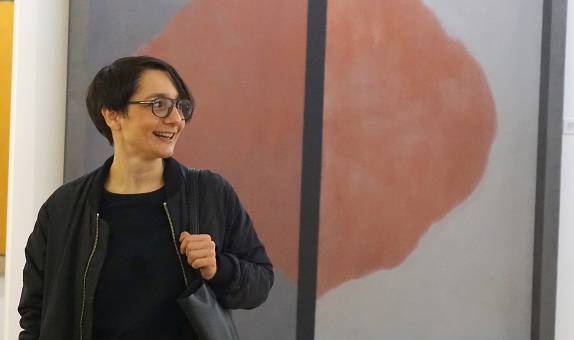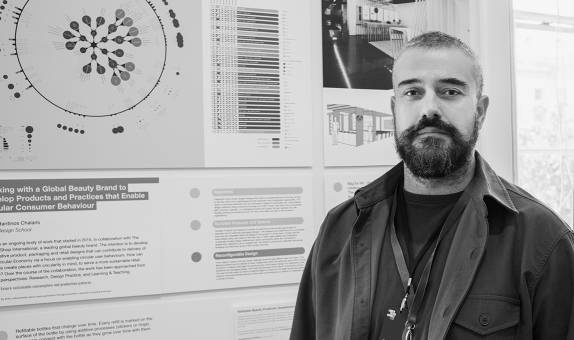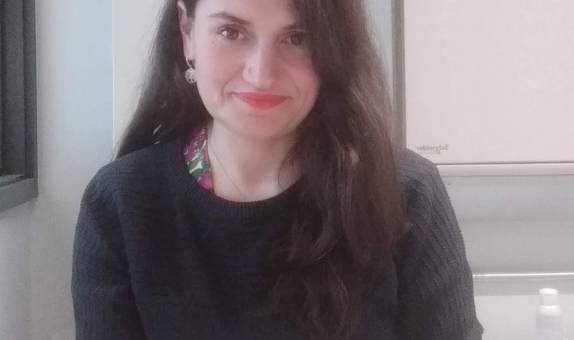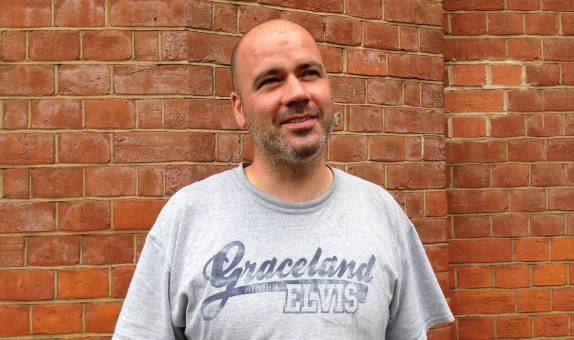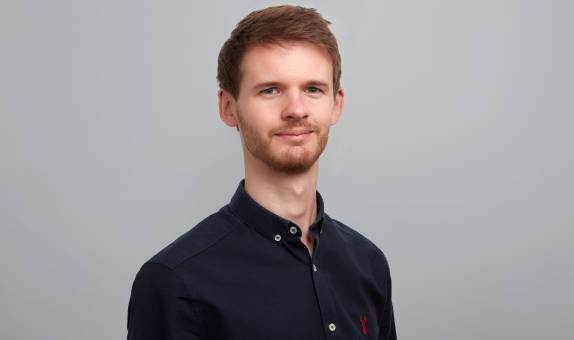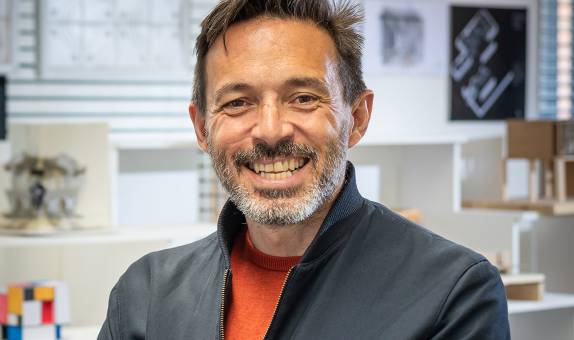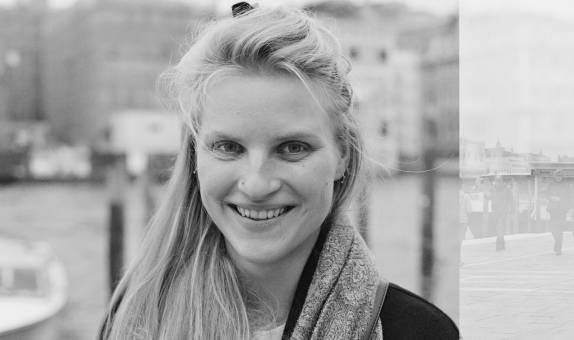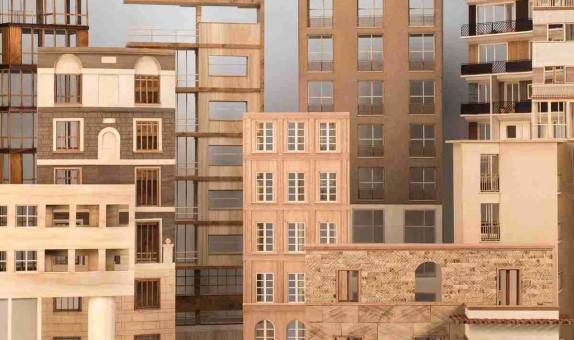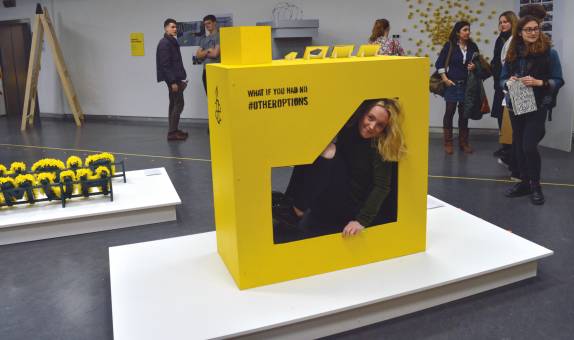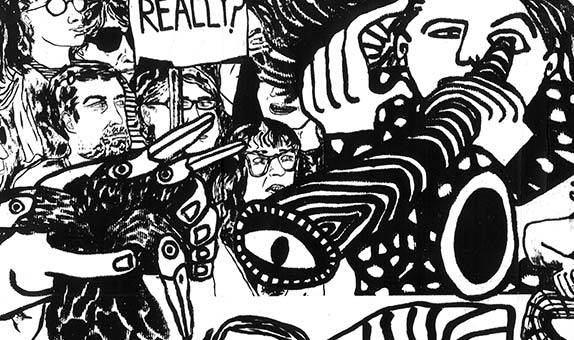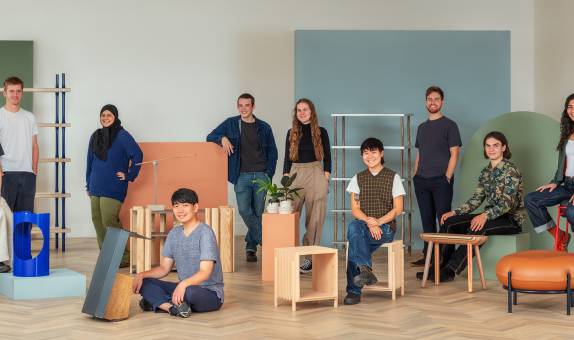Interior Design BA (Hons)

Teaching Excellence Framework (TEF) Gold award
Our commitment to high quality teaching has been recognised with a TEF Gold rating. The University has received an overall rating of Gold, as well as securing a Gold award in the framework's two new student experience and student outcomes categories.
Why choose this course?
Kingston University is ranked No.1 in the UK for interior design* in the Guardian University League Tables 2023 (*covers interior design and product and furniture design).
This course lets you create dynamic and thought-provoking interior environments. You'll develop practical skills so you can create imaginative spaces that meet the needs and enrich the experience of modern life. You'll also build your technical knowledge to help you practice professionally.
You'll get to work in purpose-built design studios and have access to a dedicated art and design library.
You'll benefit from links with design studios, cultural institutions, entrepreneurs and community groups. They often set projects for students, awarding placements or prizes to the best.
| Attendance | UCAS code | Year of entry |
|---|---|---|
| 3 years full time | W250 | 2025 |
W250 is now full for 2024 entry – please apply for 2025 entry.
For 2025 entry, please submit your application before the UCAS deadline as this course may not be in a position to consider applications submitted after this date. We do not accept applications for Year 2 (Level 5) or 3 (Level 6) entry onto this course.
Please note: Teaching on this course may take place on more than one KU campus.
| Main Location | Kingston School of Art, Knights Park |
Reasons to choose Kingston
- We're ranked No.1 in London (Times Good University Guide 2024) within the Art & Design subject area.
- All our projects are developed collaboratively with entrepreneurs, developers, community groups and some of the best design studios in the UK.
- You'll work in newly-refurbished, purpose-built design studios and have access to a dedicated art, design and material library and impressive modelling and fabrication facilities.
The Art School Experience
As part of Kingston School of Art, students on this course benefit from joining a creative community where collaborative working and critical practice are encouraged.
Our workshops and studios are open to all disciplines, enabling students and staff to work together, share ideas and explore multi-disciplinary making.

What you will study
This studio-based course comprises a series of projects increasing in complexity. It will give you an understanding of light and colour, materials, space and volume. Projects range from the design of temporary events to exploring the long-term reuse of buildings.
Modules
Year 1
Year 2
Optional year
Final year
Year 1 introduces the principles of interior design. Recent projects include designing an event within a 17th century palace and the radical reuse of a former department store and disused steel works.
Core modules
Ideation and Communication
30 credits
The aim of this module is to introduce you to the principles of ideation and communication in interior design. You will undertake a range of projects, workshops, experiments and exercises to expand your knowledge, challenge preconception and to stimulate confidence and risk taking. You will communicate this project work and other exercises appropriately through a range of newly acquired and developing visual communication skills. The emphasis in this module is on expanding creative outlook and approach and in developing core communication competencies that underpin interior design practice.
Design Process
30 credits
This module introduces you to the full interior design process in context. It addresses the significance of research, observation, documentation, evaluation, idea generation, concept development, iteration and communication. It also introduces you to core interior design considerations including proportion, ergonomics, scale, function, form, structure and spatial organisation. Conscious awareness and practice of all aspects of the design process is understood as the means for the successful development of project work from inception to resolution.
Materials and Construction
30 credits
This module will introduce you to the principle of the workshop and studio as integrated creative environments for the interior designer. The workshop is seen as an extension of the design studio, with special facilities for particular activities, such as the 3D workshop and digital media workshop. This principle is explored in the context of materials and construction and their impact on the interior through a series of projects centred on physical (and digital) modelling. Digital modelling facilitates physical modelling which is used to explore materials and construction through scale representation and the model's own attributes. Judgements are made on model aesthetics and communication. The modelling process develops basic workshop skills and refines an awareness of attention to detail.
Material characteristics and properties, manufacturing processes and technologies are also introduced and explored. The module simultaneously grounds you with key competencies and subject context knowledge.
Situating the Interior: Themes in Design History
30 credits
Through image-based lectures, discussions and study visits, this module presents a thematic history of designed spaces, situating in particular the emergence of the interior in modernity. Themes include: relations between design practices and professions, relations between politics, labour, craft and technology, taste and display, consumption and design, and spatial concepts within and beyond architecture. Each session is intended to address particular ideas and practices that have shaped our contemporary understanding of designed spaces as part of meaningful social, cultural and economic activity. The module engages with critical texts to allow students to examine the relationship between theory and practice, and to develop an understanding of how designed spaces emerge and are situated as cultural responses to modernity.
Year 2 focuses on the processes of interior design. Projects have included developing a hotel attached to the International Space Station and the redesign of transport interchanges in collaboration with Transport for London.
Core modules
Interior Practice
30 credits
The aim of this module is to give students an insight into professional practice issues and scenarios closely associated with interior design. The main areas covered centre on selection and specification and project management. It is understood that one of the roles of the interior designer is to select and specify furniture, fixtures and equipment (FFE) as well as lighting, colour and finishes. These choices naturally have a huge impact on interior space and need to reflect a sensitivity and appropriateness to context. It is also understood that considerable effort has been made to formalise the practice of interior design and bring it closer in line with recognised professional practice procedure, notably exemplified by architecture. The practice of interior design is considered across the spectrum.
Interior Context 1
30 credits
The aim of this module is to give you an insight into professional practice issues and scenarios closely associated with interior design. The main areas covered centre on selection and specification and project management. It is understood that one of the roles of the interior designer is to select and specify furniture, fixtures and equipment (FFE) as well as lighting, colour and finishes. These choices naturally have a huge impact on interior space and need to reflect a sensitivity and appropriateness to context. It is also understood that considerable effort has been made to formalise the practice of interior design and bring it closer in line with recognised professional practice procedure, notably exemplified by architecture. The practice of interior design is considered across the spectrum.
Interior Context 2
30 credits
The aim of this module is to explore interior contexts in greater breadth and detail through practical project work. The module is a natural continuation of the Level 4 (Year 1) Design Process module. It is intended to expand outlook and increase awareness of theoretical positioning and recognises that the most engaging and resonant projects do not occur in isolation as hermetic events, but recognise their context and communicate viewpoint contributing to broader subject and topical discussion. A number of diverse attitudes and approaches with clear parameters are offered according to context eg social, commercial, cultural, environmental, political. You explore these through practical project work, synthesising all previous learning in the process and contextualising your personal design vision and ambition.
Critical Issues in Interior Design: Research and Practice
30 credits
This module builds on the historical and thematic content introduced at Level 4 and emphasises the theorisation of interior design practice. A series of lectures, seminars, workshops, tutorials, screenings and visits informs and supports your own emerging research interests and the development of independent visual and academic research skills that cross history/theory and design practice. Lectures and seminars will deepen critical and theoretical engagement with contemporary issues in interior design. Seminar tasks and assessments are carefully designed to foreground projects that support the location of interior design as a discipline. Research methodologies are introduced though case studies and practical activities that reflect the issues explored through the module's content.
You can choose to study or work abroad through the University's Study Abroad programme or the Erasmus programme during your degree.
Your final year focuses on the practice of interior design. You'll complete a dissertation, a portfolio and a major design project. This project will reflect everything you've learnt and will be the most significant expression of your personal design vision. Examples of recent projects include designing pop-up events with Speedo for the Rio 2016 games and the creative reuse of former factories, hotels and performance venues.
Core modules
Major Design Project
60 credits
The Major Design Project is the course 'capstone' project. It provides the opportunity to consolidate and practise all prior learning during your time on the programme in a culminating design expression of your personal interior design journey. You have full responsibility for authoring the Major Design Project, from inception through to completion, and for demonstrating skills in defining, analysing and developing a substantial response to an individually-defined interior design issue of interest. A formal proposal document is produced as part of the module to map out and justify individual intention.
The research and documentation of the project is an integral part of the submission. It reflects the process as well as the critical analysis and methodology of the research itself. The practical project work evolves, directly informed by the research. Individual project interests are wide ranging and critically considered. Final project resolutions are supported by a carefully composed and edited project document recording process and reflection. This module forms a bridge to your future study or career.
Practice Profile
30 credits
The aim of this module is to enable you to present a personal practice profile alongside your course portfolio to promote employability. You research the broad contemporary interior design and design media scene to understand current practices, discourses and trends with a view to positioning their own future career aspiration. The practice and comment of specific exemplar studios, thinkers and other sources are referenced.
You refine your formal course portfolio and tailor an individual profile presenting your own work and outlook in broader context. The profile contains an integrated body of work representing the module research, edited/re-presented course study outcomes and new material as appropriate, interests, observations, critical comment and transferable skills (skills that may not be directly evident in a body of creative work). The practice profile reflects critical industry awareness, personal identity and viewpoint communicating to its desired audience accordingly. The means of communication is a key consideration and should fully explore both digital and analogue options and strategies.
Dissertation: Research and Reflection
30 credits
Building on the links between research and practice embedded at Level 5, the Critical and Historical Studies (CHS) Dissertation: Research and Reflection module focuses on in-depth research, critical enquiry and reflection on questions and critical issues emerging in students' own practice, and pertinent to the practice of their own discipline.
Over the module, students will initiate and develop an individual research topic; identify and evaluate appropriate archives, bodies of critical literature, visual/material sources and research methods; manage their study time; engage with and respond to tutorial dialogue and peer feedback, and apply critical and analytical skills to produce a 7-8000 word written Dissertation, supported by a series of lectures, seminars and tutorials.
Future Skills
Knowledge to give you the edge
Embedded within every course curriculum and throughout the whole Kingston experience, Future Skills will play a role in shaping you to become a future-proof graduate, providing you with the skills most valued by employers such as problem-solving, digital competency, and adaptability.
As you progress through your degree, you'll learn to navigate, explore and apply these graduate skills, learning to demonstrate and articulate to employers how future skills give you the edge.
At Kingston University, we're not just keeping up with change, we're creating it.

Gallery of student work
Entry requirements
Teaching and assessment
Scheduled learning and teaching on this course includes timetabled activities including lectures, seminars and small group tutorials.
It may also include critiques, project work, studio practice and performance, digital labs, workshops, and placements.
Gallery of student work
Who teaches this course?
This course is taught in the Design School, Kingston School of Art. Our staff are practising designers, researchers and academics who'll enrich your student experience with contemporary issues, events and challenges. Influential guest speakers reinforce the currency of the course, providing the latest insights into practice.
Course fees and funding
Additional costs
Depending on the programme of study, there may be extra costs that are not covered by tuition fees which students will need to consider when planning their studies. Tuition fees cover the cost of your teaching, assessment and operating University facilities such as the library, access to shared IT equipment and other support services. Accommodation and living costs are not included in our fees.
Where a course has additional expenses, we make every effort to highlight them. These may include optional field trips, materials (e.g. art, design, engineering), security checks such as DBS, uniforms, specialist clothing or professional memberships.
Facilities
You'll use our studio spaces and facilities to experiment and explore new ways to push the boundaries of projects and open discourse across disciplines.
Collaborative and multi-disciplinary teamwork is actively encouraged between students, across faculty courses, international institutions and with industry.
Throughout the course, you'll be encouraged to explore and develop expertise in current design approaches, techniques, media, and application including branding, editorial, interactive design, packaging and 3D design, advertising, information design, digital moving image, sustainable and experiential design.
Skills and techniques such as typography, photography, moving image, printmaking, rapid proto-typing, analysis and research, human factors, presentation, interactive and graphic software all support project work by helping realise solution-led ideas.
After you graduate
Our graduates develop careers in interior and architectural design practice, exhibition, scenography and brand environments. Examples of employers include Brinkworth, Universal Design Studio, Casson Mann, Squire and Partners, and Fitch.
Follow the links below to explore some of the possibilities that are open to you as a designer after graduating from Kingston:
What our external examiners and collaborators say
Links with business and industry
Live industry projects enable us to ask important questions and innovate within a professional context.
Our students have worked on projects with Transport for London, Nissan, the European Space Agency, Speedo, Vitra, Ted Baker, Browns, The Office Group, English Heritage, the Greek Ministry of Culture and City Authorities across the UK.
We benefit from partnerships with leading UK Design studios including Brinkworth, Universal Design Studio, David Collins, KKD, Found Associates, Squire & Partners, Casson Mann, Wish & FITCH.
Key information set
The scrolling banner(s) below display some key factual data about this course (including different course combinations or delivery modes of this course where relevant).
Course changes and regulations
The information on this page reflects the currently intended course structure and module details. To improve your student experience and the quality of your degree, we may review and change the material information of this course. Course changes explained.
Programme Specifications for the course are published ahead of each academic year.
Regulations governing this course can be found on our website.


